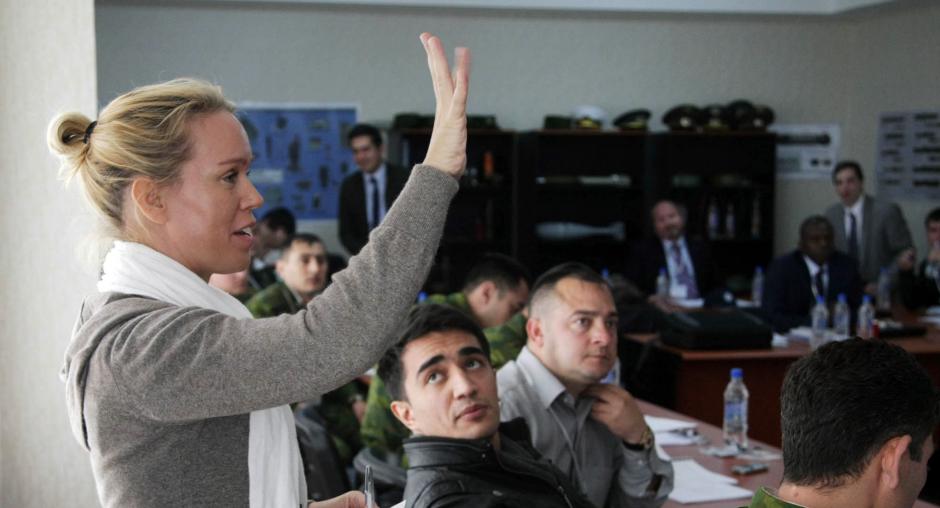First OSCE-supported Regional Explosive Hazards Awareness and Reduction Course completed in Tajikistan

DUSHANBE, 3 April 2015 – The first five-day regional Explosive Hazards Awareness and Reduction course facilitated by the OSCE Office in Tajikistan concluded in Dushanbe today.
Twenty students – predominantly from the national armed forces of Kazakhstan, Kyrgyzstan, Tajikistan and Turkmenistan - attended the training course. It marks the continuation of a comprehensive two-year train-the-trainer programme implemented in accordance with the international mine action standards (IMAS).
“Military forces in Central Asia have a vital role in addressing the challenges and concerns stemming from explosive hazards. Enhancing national capacities contributes to fulfilling their mission at home safely and on a sustainable basis,” said Flemming Splidsboel Hansen, Head of the OSCE Office’s Politico-Military Department at the OSCE Office in Tajikistan.
The Director of Tajikistan National Mine Action Centre Muhabbat Ibrohimzoda, said: “Measures that support the reduction and responses to explosive hazards enable progress towards compliance with international humanitarian disarmament conventions and reducing the suffering caused by explosive hazards.”
In the context of peace-keeping operations, Kassim Olukhanda of the UN Mine Action Support Team/UN Mission in Lebanon, said: “The conduct of training courses in accordance with the IMAS enhances the possibility for the participation of interested states and their military forces in peace-keeping operations which are vulnerable to explosive hazards.”
The course was hosted by Tajikistan’s Defence Ministry and facilitated by the OSCE Office in Tajikistan in partnership with the Lebanon Mine Action Centre, the Danish Church Aid’s Humanitarian Mine Action and the UN Mine Action Support Team/UN Mission in Lebanon. It was financed by the Government of United States – the Department of State’s Office of Weapons Removal and Abatement, and the Dutch Foreign Ministry.
Since 2009, the OSCE has been supporting the development of co-operative mechanisms on a technical level among states in Central Asia and Afghanistan to address concerns and challenges stemming from explosive hazards.
